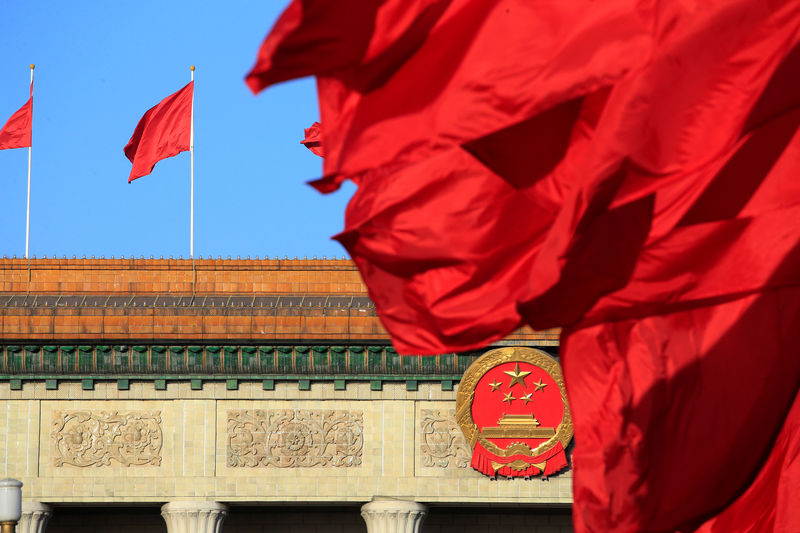By Josephine Mason and Benjamin Kang Lim
BEIJING (Reuters) - China plans to create an energy ministry to oversee the country's vast oil, natural gas, coal and power sectors, part of a government shake-up to make policymaking more efficient, four sources with ties to the country's leadership said this week.
The new ministry would replace the existing regulator, the National Energy Administration (NEA), which was created a decade ago and is part of the powerful state economic planner, the National Development & Reform Commission (NDRC).
The new ministry would not be under the NDRC and would handle energy-related duties currently scattered across many government agencies, the sources said.
The planned shake-up is part of a broader reshuffle of government departments, which will be presented to China's largely rubber-stamp parliament on Tuesday. It is not clear if details of the changes will immediately be made public.
China is also expected to overhaul its financial regulatory set-up, possibly merging different agencies to improve the ability to control financial risk, said four additional sources familiar with the matter.
The NEA declined to comment and the NDRC did not respond to requests for comment.
It was not known who will be appointed to run the new ministry. Nur Bekri heads the NEA and is a vice minister of the NDRC.
Removing energy from the NDRC's portfolio reflects the growing importance of the oil, gas and clean fuel sectors in the world's biggest energy consumer.
The plan comes after the ruling Communist Party agreed in late February to deepen reform of party and government departments to improve their function.
While the February statement did not say which departments may be merged, re-organised or eliminated, it said the moves would strengthen market supervision and management of natural resources and environmental protection.
The new ministry will be responsible for major ongoing tasks including a push to liberalise China's electricity market, opening energy infrastructure such as gas pipelines and oil storage to private and foreign players, boosting renewable energy use and weaning the country off coal, its favourite fuel.
The reorganisation comes as China prepares this month to launch its long-awaited crude oil futures contract, which will be Asia's first pricing benchmark, giving the world's top oil importer greater clout on the global market.
It's not known if the new department will also oversee the three state oil majors, Sinopec, and China National Petroleum Corp [CNPET.UL] and CNOOC.
UNIFIED STRUCTURE
Unifying energy supervision under a standalone regulator may also help to reduce overlaps that have complicated the implementation of major policy in recent years.
"If this happened, the energy ministry would have more unified power to push through reform and regulate the market," said Lin Boqiang, an energy expert with Xiamen University. He did not know about the plan.
"The big question is whether the NDRC is willing to hand over its responsibility for the energy sector."
In 2016, government-enforced cuts in coal mining as part of Beijing's supply-side reform and war on smog caused shortages of the fuel and a surge in prices, hurting utilities. Later, the NDRC had to reverse some of the most stringent measures.
This past winter, Beijing's push to heat homes with gas and electricity created chaos as some homes were freezing and factories were forced to shut due to lack of fuel.
China formed its first energy ministry in 1988 from the remnants of the old electricity, coal and oil bureaus, but dissolved it in 1993.

China set up the NEA in 2008 to improve coordination and conduct planning, but it has no policymaking powers and its decisions remain subject to the NDRC's approval.